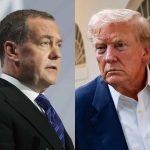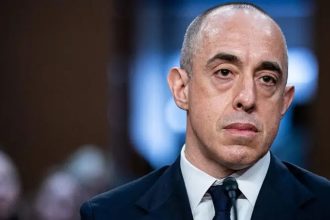Elon Musk has announced his departure from the Trump administration following a turbulent tenure leading efforts to shrink the United States government, which resulted in thousands of federal job cuts.
In a post on his social media platform X, the billionaire thanked President Donald Trump for the opportunity to head the Department of Government Efficiency, a cost-cutting initiative that became known for its aggressive downsizing of federal agencies.
“As my scheduled time as a Special Government Employee comes to an end, I would like to thank President @realDonaldTrump for the opportunity to reduce wasteful spending,” Musk wrote. “The @DOGE mission will only strengthen over time as it becomes a way of life throughout the government.”
The White House began “offboarding” Musk as a special government employee on Wednesday night, according to BBC sources. While his role was always temporary, his exit comes just a day after he publicly criticized Trump’s latest budget bill, which proposes massive tax cuts and increased defense spending.
In an interview with CBS, Musk expressed disappointment with the budget proposal, arguing it would expand the federal deficit.
“I think a bill can be big or it could be beautiful,” Musk said. “But I don’t know if it could be both.”
He also suggested the bill “undermines the work” of DoGE, which had sought to eliminate government waste. Musk initially pledged to cut “$2 trillion” in federal spending before scaling back targets multiple times, eventually settling on $150 billion in reductions.
Under his leadership, an estimated 260,000 federal jobs—out of a 2.3 million-strong workforce—were eliminated or offered buyouts. However, the rapid cuts led to legal challenges, with federal judges blocking some mass firings and ordering reinstatements. In one high-profile error, employees of the U.S. nuclear program were mistakenly terminated.
Musk’s government role coincided with a sharp decline in Tesla’s performance. The company reported a 13% drop in vehicle deliveries in early 2024—its steepest quarterly decline ever—while its stock plummeted as much as 45% before partially recovering. Tesla has since warned investors of ongoing financial challenges, citing “changing political sentiment” as a risk factor.
Activists protesting Musk’s political ties have targeted Tesla, vandalizing dealerships and charging stations. The backlash grew so severe that U.S. Attorney General Pam Bondi warned such acts could be prosecuted as “domestic terrorism.”
Musk had signaled his exit for weeks, telling investors last month that his DoGE involvement would “drop significantly” as he refocused on Tesla. At an economic forum in Doha this week, he reaffirmed his commitment to leading the automaker for at least five more years.
He has also scaled back political donations after spending nearly $300 million backing Trump and GOP candidates in 2023.
Despite the controversies, Musk remains defiant. “DoGE is just becoming the whipping boy for everything,” he told The Washington Post. “Something bad would happen anywhere, and we would get blamed for it even if we had nothing to do with it.”







